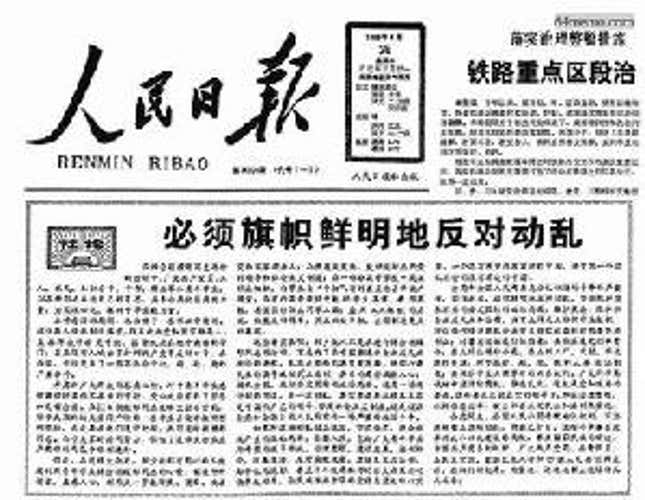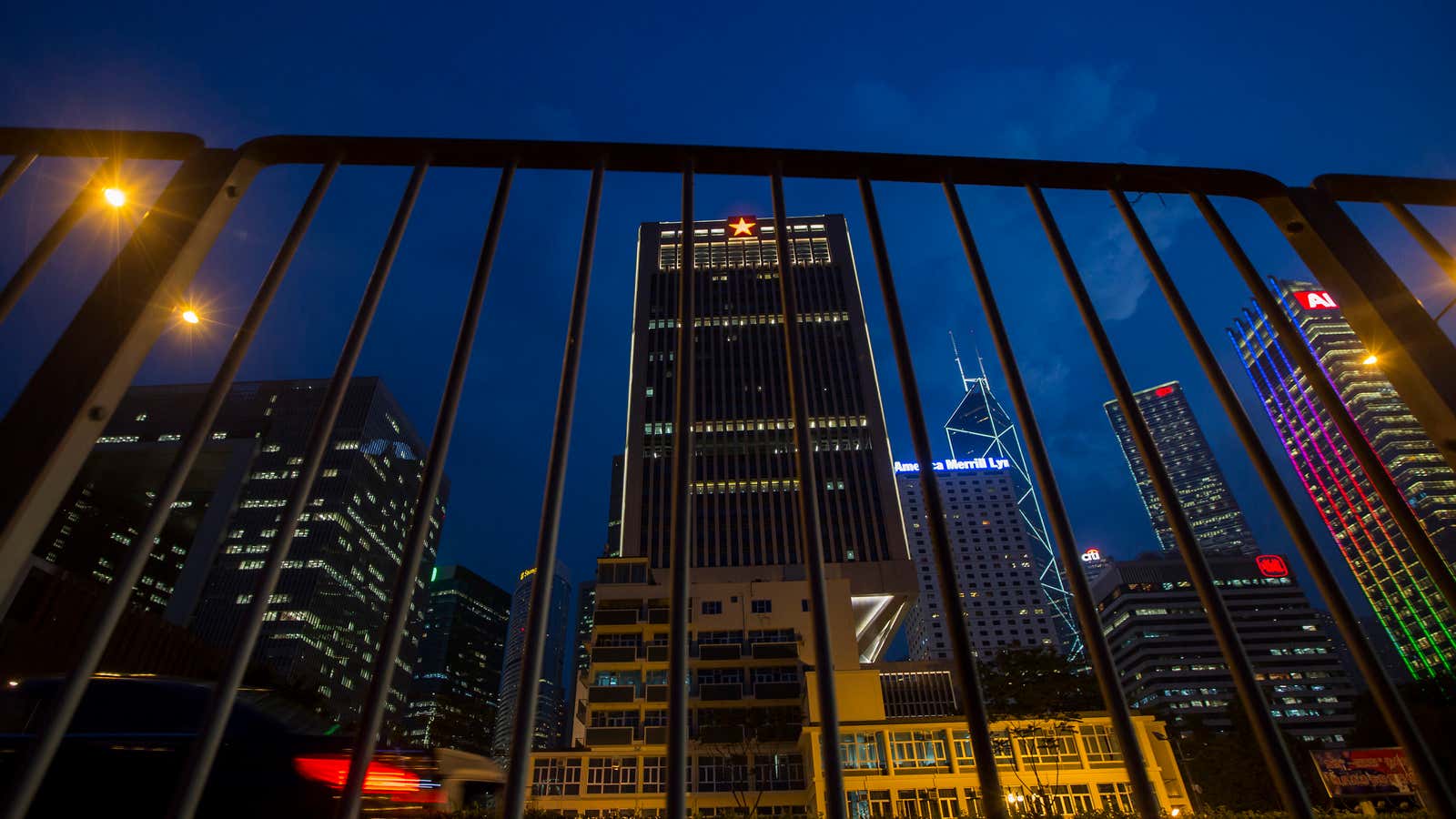HONG KONG—Beijing has a harshly worded message for Hong Kong’s pro-democracy movement.
Not only is Beijing unwilling to reconsider the August decision to allow only Communist Party-approved candidates to run for Hong Kong’s highest office, but Hong Kongers who continue to participate in the protests should expect dire consequences, an editorial in the People’s Daily newspaper warned today.
Some activists and analysts, including a former Tiananmen student leader, say the piece bears a marked similarity to a notorious editorial that ran the People’s Daily more than 25 years ago. That piece was later blamed for leading to the brutal crackdown on demonstrations, which killed hundreds or thousands, depending on estimates.
Today’s People’s Daily editorial (link in Chinese, our English translation here) says the Beijing stance on Hong Kong’s elections are “unshakable” and legally valid. It goes on to argue that the pro-democracy “Occupy Central” protests are illegal and are hurting Hong Kong. “If it continues, the consequences will be unimaginable,” the editorial warns.
Other editorials in state-run or state-affiliated media have weighed in on the protests in recent days, dubbing the participants “radical activists” and blaming unseen foreign forces for encouraging them. But the People’s Daily editorial carries more weight, appearing as it did first in the official government newspaper—though there is plenty of debate among China-watchers on this.
It blames the protests for breaking the “foundation of Hong Kong society,” by not following the rule of law, calls on all of Hong Kong to help restore order, and ultimately blames a small group for the demonstrations that have swelled into the tens of thousands:
A few ‘Occupy Central’ people have, for their own self interest, ignored the law. They have incited the public, paralyzed transportation, disrupted businesses…and interfered with the daily lives of Hong Kong people. They should bear the legal responsibilities for their illegal activities.
The editorial advises Occupy Central’s participants to “stop all illegal behavior as soon as possible,” and return order and peace to Hong Kong. It concludes: “If a few people are determined to go against the rule of law and provoke disturbances, in the end they will reap what they have sown.”

The Tiananmen editorial (paywall), known as the “426” or “April 26” editorial for the day it was published, has some similarities. It also:
- defined the protests as an illegal action
- accused a small group of inciting the crowd
- asked for the nation to help put down the protests
- warned of economic consequences if the unrest continued
But the 1989 editorial went much further, calling the protests then a conspiracy to wrest power from the Chinese Communist Party, and claiming they were designed to “negate the leadership of the CPC and the socialist system.”
The hardline of the 1989 editorial marked a turning point in the Tiananmen protests, and set the foundation for their tragic end. “Without the April 26 editorial and its conclusions, there would not have been the June 4 massacre,” Yan Jiaqi, who had been a political adviser to the Chinese administration in the 1980s, told The New York Times 25 years later.
